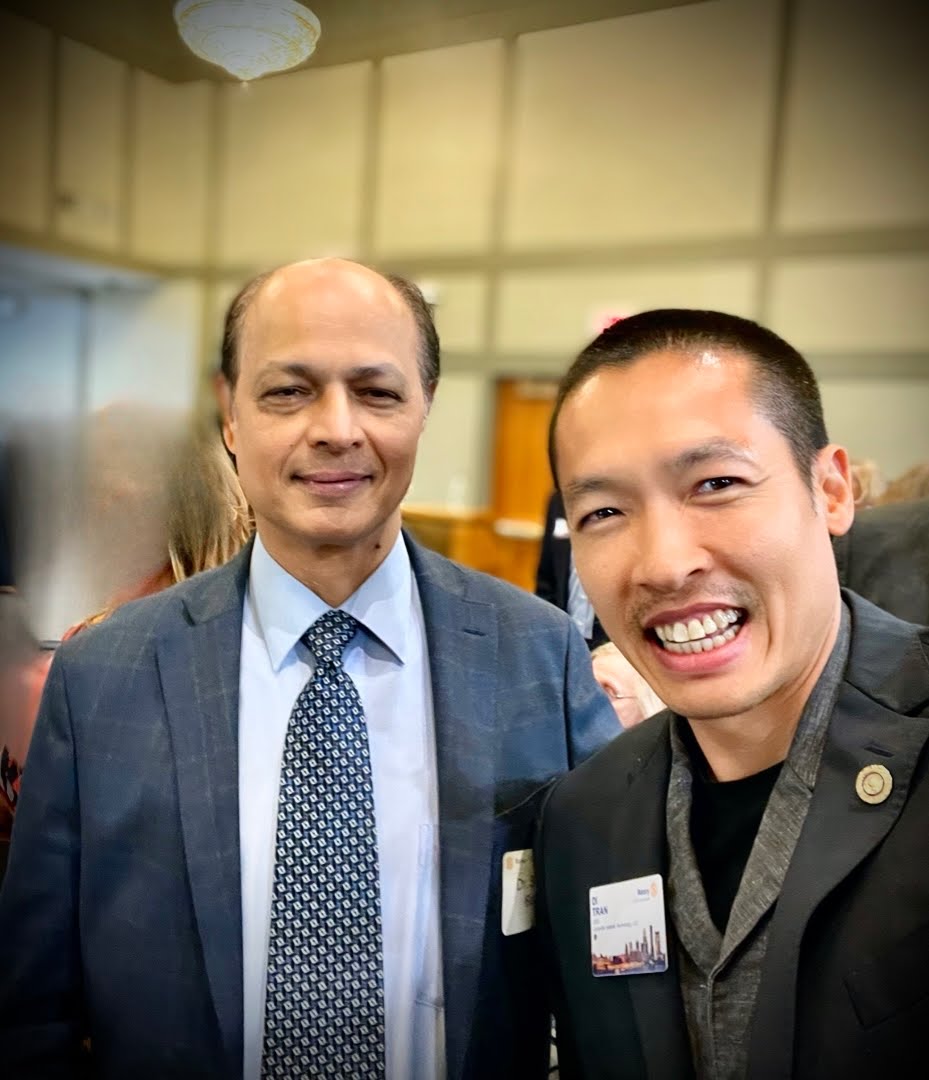When Di Tran attended the presentation on “The Future of Alzheimer’s Disease” by Dr. Greg Cooper and Dr. Shirish Barve at the Rotary Club of Louisville, he was hoping to gain a deeper understanding of the intricacies of brain health. As an author and small business owner with a keen interest in health, Tran was seeking confirmation for his beliefs on wellness. The session, however, turned out to be more than just informative—it was transformative.
From the onset, Tran was captivated by the revelations shared by both doctors, particularly the assertion that the gut significantly influences the brain’s health. During a Q&A session, Di Tran posed a question that had long intrigued him: “Is it true that the gut is the second brain?” Without missing a beat, Dr. Barve responded, “Absolutely, you are right on point.”
For Tran, it was a eureka moment. He gleaned that our lifestyle, especially our dietary habits, plays a pivotal role in our cognitive health. Wanting to know more about dietary specifics, Tran inquired about coffee’s benefits. Dr. Barve’s answer was both simple and resolute, “It is great, but without sugar. BLACK ONLY, OK?”
Proudly, Di Tran shared his recent lifestyle changes, emphasizing his reduced intake of sugars and carbohydrates. “I’ve been relying on coffee, vegetables, chicken (white meat), and whole fruits as my primary sugar source. The positive difference in how I feel is undeniable,” Tran commented. Moreover, recognizing the importance of gut health, he also highlighted his consumption of probiotic-rich foods like Kim Chi and yogurt.
Dr. Barve, clearly impressed, responded, “Great way to go, keep doing it.” He elaborated on the significance of incorporating live bacteria from natural food sources like yogurt and Kim Chi. “The good bacteria from these sources is far superior to what you might get from pills, which often contain dead bacteria. For optimal health, we need these live bacteria to establish a robust ecosystem known as the microbiome.”
Before concluding, Dr. Barve touched upon the undeniable value of physical activity. “Exercise and being active are critical elements in maintaining not only your physical health but also your cognitive health,” he emphasized.
For Di Tran, the session was a reaffirmation of his beliefs, proving that his journey to better health was on the right track. The knowledge he gained from Dr. Cooper and Dr. Barve’s presentation reinforced the idea that a holistic approach to health, encompassing diet and activity, is the key to a sharper mind and a vibrant life.
Dr. Greg Cooper, MD:
- Behavioral Neurologist at Norton Neuroscience Institute.
- Holds roles as Chief of Adult Neurology and Director for the Memory Center.
- Has 25 years of experience in memory disorders and has led numerous clinical trials.
Dr. Shirish Barve, PhD:
- Chief Research Scientist at Norton Neuroscience Institute and Professor at the University of Louisville Medical Center.
- Expertise in gastroenterology, hepatology, and pharmacology/toxicology.
- Focuses on the microbiota-gut-brain axis, aiming to reduce the impact of neurological diseases using a mix of basic, translational, and clinical approaches.
References
https://ismyrotaryclub.com/story/ezBulletinMore.cfm?StoryID=229857



